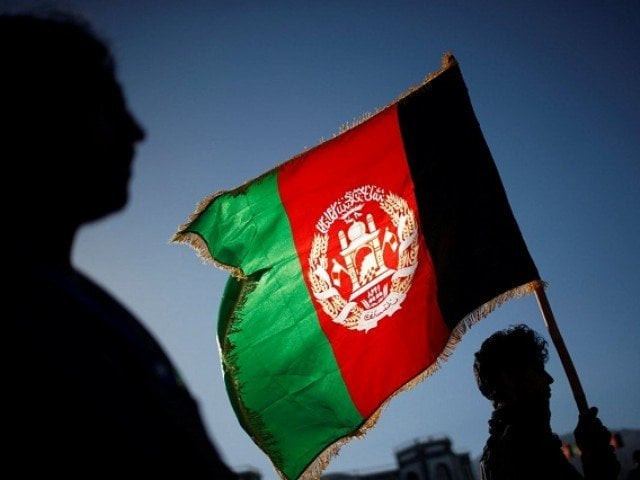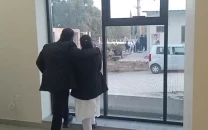US watchdog sounds alarm over Afghanistan
Foreign aid has done little to curb the Taliban's oppression or halt the country's downward spiral

Billions in foreign assistance have poured into Afghanistan since America’s chaotic withdrawal, yet the Taliban remain defiantly unwilling to improve governance, combat terrorism, or reverse their oppression of women, a US watchdog has warned.
The war-torn country has instead spiraled deeper into crisis under Taliban rule, according to the latest quarterly report from the Special Inspector General for Afghanistan Reconstruction (SIGAR). The situation, the watchdog said, remains dire, with the militant group tightening its grip on power while ignoring mounting concerns over a faltering economy, widespread rights violations, and the growing threat of terrorism.
In its report to Congress, the inspector general noted that more than $3.71 billion in US aid has flowed into Afghanistan since 2021, with over 64% of the funds routed through United Nations agencies, the UN Assistance Mission in Afghanistan (UNAMA), and the World Bank-managed Afghanistan Resilience Trust Fund. Yet, the oversight body warned, the aid has done little to mitigate the Taliban’s repressive policies or prevent the country’s continued decline, raising fresh questions about the effectiveness of international support.
Women, who according to the UN have been erased from Afghan public life under the latest iteration of the Taliban rule, continue to face severe restrictions, the SIGAR report cautioned. Secondary education for girls remains banned, and women are prohibited from working in most sectors, including NGOs and healthcare. The report also points to the increasing difficulty in distributing humanitarian aid, as Taliban-imposed barriers prevent essential assistance from reaching those who need it most.
Analysts note that the Taliban’s policies bear striking similarities to their first rule in the 1990s, despite years of international engagement and billions in assistance aimed at encouraging moderation. "The Afghan Taliban have gradually imposed restrictions reminiscent of their earlier regime," said Hassan Akbar, Pakistan Fellow at the Wilson Center, a Washington-based think tank. He added that neither diplomatic efforts nor humanitarian aid had tempered the group’s hardline approach.
Growing concerns
The special inspector general’s report further documents that in 2022, the US transferred $3.5 billion in frozen Afghan central bank assets to a Swiss-based fund, now worth nearly $4 billion. However, the Taliban, still unrecognized internationally and under sanctions, have no access to these funds. The US watchdog for Afghan reconstruction notes that the freeze has left the country’s banking system fragile and deepened its economic collapse.
The latest oversight report also brings to light a 40% surge in ISIS-K attacks in 2024, while the Tehreek-e-Taliban Pakistan (TTP) and its affiliates have carried out more than 640 attacks, a 25% increase from the previous year. A December assault by TTP militants killed 16 security officials in South Waziristan, prompting Islamabad’s first cross-border airstrikes against Taliban forces. The strikes in Afghanistan’s Paktika province killed several TTP commanders and destroyed a training facility.
Intelligence assessments suggest that Taliban-controlled areas serve as operational hubs for extremists, raising fears that Afghanistan is once again becoming a sanctuary for terrorist organizations. Border clashes between Pakistan and Taliban forces have escalated, and in response, Islamabad has deported hundreds of thousands of Afghan refugees. As regional tensions mount, reports indicate that the Taliban continues to provide safe passage for TTP fighters, adding to growing concerns over the country's role in South Asia’s security landscape.
Ashok Swain, Professor of Peace and Conflict at Uppsala University, highlighted the Taliban's longstanding ties to terrorism, noting that these connections remain integral to the group's identity. “Historically, their identity is deeply intertwined with acts of terrorism and the suppression of dissent through violence,” he explained.
Swain added that there is skepticism about the Taliban’s willingness to abandon these tactics, especially in light of their recent actions. Trust, the Sweden-based academic said, is contingent on observable changes in behavior over a sustained period, combined with concrete steps toward inclusivity, accountability, and adherence to international norms. Without such reforms, Swain cautioned, the Taliban seem to have reverted to tactics that support terrorism and exacerbate regional conflicts.
Turning point
President Donald Trump’s decision to freeze US foreign aid for 90 days has added to Afghanistan’s woes, with relief agencies warning it could push millions deeper into the crisis. While the suspension is meant to reassess spending, it risks crippling aid efforts in Afghanistan where the economy is already in free fall. The UN has warned that a prolonged freeze could trigger mass starvation and the collapse of basic services. According to the latest assessment by SIGAR, some 16.8 million Afghans need urgent assistance. However, restrictions imposed by the Taliban, continue to block aid distribution, worsening food shortages and straining healthcare. Hospitals, the report warned, are running out of supplies, child malnutrition is rising, and dwindling access to clean water is fueling the spread of disease.
“The freeze on US aid will deepen divisions within the Taliban, worsen the humanitarian crisis, and heighten the threat of attacks from active terrorist groups,” cautioned Hassan Akbar, Pakistan Fellow at the Wilson Center.
Overall, SIGAR's quarterly report paints a bleak picture of Afghanistan’s future under the Taliban. In its133-page document, the US watchdog highlights the regime’s prioritization of control over governance, with little regard for rebuilding the country or improving living conditions for its people. “The Taliban have shown no ability—or willingness—to govern effectively,” the report states, adding that the situation remains one of repression, hunger, and uncertainty.



















COMMENTS
Comments are moderated and generally will be posted if they are on-topic and not abusive.
For more information, please see our Comments FAQ